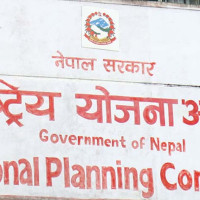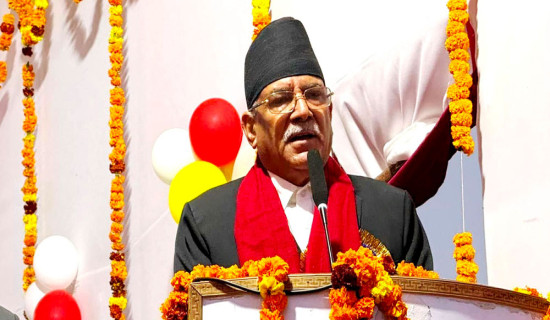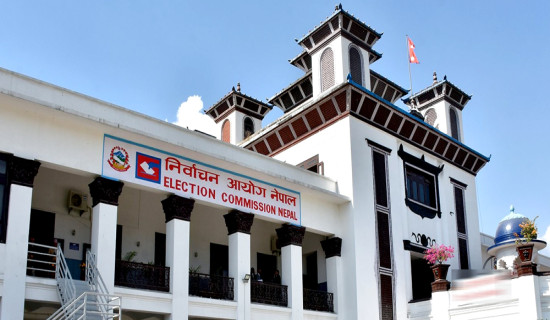- Saturday, 17 January 2026
Republic System Has Empowered People
On May 28, 2008, Nepal abolished the 240-year-old monarchy and ushered in new system of governance. The parliament promulgated the new charter in 2015 that enshrined the new system of governance based on federal democratic republicanism, secularism and inclusiveness. It also envisaged a socialism oriented economy in the country.
The implementation of the republican system of governance and the devolution of power to the grassroots were carried out to improve public services and welfare programmes from the central to the local level. A high level of independence and concurrent power, vested in the local governments, has helped expedite holistic development at all levels.
Milestone
After the implementation of republic system, the country has held two rounds of local-level polls, considered a milestone in consolidating the democratic-republican system in the country. This new system is expected to build a socialism-oriented economy as envisaged in the constitution by effectively implementing the constitutional rights of the people and bringing socio-economic transformation.
However, fifteen years have passed since establishing the republic, yet no significant changes have taken place in the country. The political parties have failed to translate what they had promised in the constitution into action.
According to Bipin Adhikari, an expert on constitutional affairs, the new political system could not bring any visible changes as promised. “No political change can be institutionalised unless political changes have their positive impacts on the daily life of the people and prosperity of the nation.”
“The federal republican system has so far been able to guarantee political freedom, end the age-old monarchy and transfer power to the people through political parties. But the constitution has not been implemented in the same spirit it was written.”
He blamed rampant corruption and instability as major constraints for achieving the desired goal.
The system, however, has introduced a good constitution composed of democratic values, inclusiveness and provisions of greater devolution of authority.
The system, however, has introduced a good constitution composed of democratic values, inclusiveness and provisions of greater devolution of authority. “As such, the system has high potential to prepare a firm foundation for socio-economic transformation of Nepali society,” he said, adding, “The republican system should fulfil the people’s aspirations.” However, other leaders expressed different views regarding the new system. They opined it would be wrong to say that the country achieved nothing over one and half decades of implementation of the new system.
Vice-chair of CPN-UML and chair of the Constituent Assembly Subash Nembang, who played a crucial role in getting the constitution promulgated, believed that the country gained visible political achievements during the past fifteen years.
“The republican system provided the country with a socialism-oriented, inclusive constitution written by the representatives of the sovereign people. It helped empower citizens with various rights and also institutionalised and prepared a framework for the federal republican system.”
Ongoing Process
The new governance system has proved that changes can be realised peacefully with the support of the people, he added. “We have made a lot of achievements that will serve the interests of the country and the people. One should not forget that the new political system’s implementation is an ongoing process.”
Nembang also stressed that political parties need to correct their mistakes and work to institutionalise their political achievements.
Other leaders, however, admitted weaknesses in implementing a federal republican system in its genuine spirit.
The whip of the Nepali Congress parliamentary party, Pushpa Bhusal, contended the political instability and apathy of the authorities, responsible to enforce the constitution, is the reason behind the failure in achieving the objectives of the federal democratic republic system of governance and inclusive democracy.
The main opposition party held the parliament hostage for over eight months to serve its petty interests. Because of this, many important laws, including the one required to set up federalism’s strong foundation remained unapproved, which has curtailed the constitutional rights of other layers of government, she claimed.
Congress leader Bhusal stated that the country made strides in realising an inclusive federal republic structure by holding two rounds of elections and ensuring inclusive participation in the local governments.
“However, ensuring inclusive participation of the underprivileged community itself was not sufficient, their social-economic growth and upliftment are equally important. But because of instability and obstruction of the parliament, we have failed to achieve this objective,” she added.
Former deputy prime minister and leader of the CPN (Maoist Centre) Narayan Kaji Shrestha said the federal democratic republican constitution has ensured a socialism-oriented inclusive political system in the country.
As the country is marking the 15th Republic Day, an unforgettable day of celebration in the country’s political history, the government’s focus should be centred on making the federal republican system of governance complete and bringing a qualitative change in the lives of the people.
“The system should bolster sovereignty, territorial integrity, independence and national unity. However, the country’s territories are still being encroached, many unequal treaties still exist while there is also a deviation in Nepal’s independent foreign policy,” said Shrestha.
“We are enjoying some benefits of this new system. Since the federal democracy is new for the country, we must work hard to institutionalise its achievements for economic prosperity and to establish a just society.”
Shrestha blamed leadership’s undemocratic ways of living and rampant corruption for the failure to make the new system vibrant. The lack of consensus among the political parties regarding matters about national issues, especially nationality, foreign policy, security and development projects, poses another challenge in realising the objectives of new governance system.
However, former Prime Minister and senior leader of CPN (Unified Socialism) Jhala Nath Khanal blamed CPN-UML chair KP Sharma Oli-led government for missing out historic opportunity to take the country towards socio-economic development and institutionalising political achievements.
“Despite the strong electoral mandate, the previous government had not only failed to institutionalise the political achievements but also threatened the constitution and republic system by dissolving the parliament,” he said.
According to him, the development process has moved forward and the constitution came into force after the coalition government took shape.
Stressing the need to adopt a progressive policy for the agricultural, industrial, educational and health sectors and land reform, Khanal asked the government to act responsibly to make the country self-reliant. Claiming that the federal republican system is still at its nascent stage, Khanal urged all leftist and democratic forces to unite to strengthen sovereignty, territorial integrity, national independence and nationality.
National Interests
Meanwhile, political and constitutional analysts believe that to make the federal republic system a success, political parties and governments need to act by prioritising the interest of the people and country. Constitutional expert Bipin Adhikari said the constitution would be implemented in its true spirit if corruption is controlled and the rule of law is ensured. “The government’s efforts should be centred on making the republican system complete in every aspect,” he said.
As the country is marking the 15th Republic Day, an unforgettable day of celebration in the country’s political history, the government’s focus should be centred on making the federal republican system of governance complete and bringing a qualitative change in the lives of the people. The republic system could take a meaningful form only if the people become capable of exercising all rights enshrined in the constitution.
(Adhikari is a journalist associated with this daily)

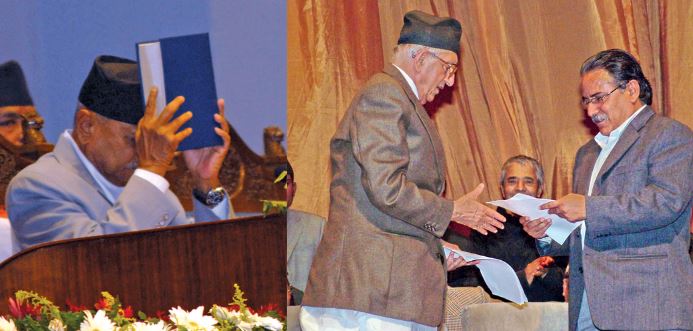
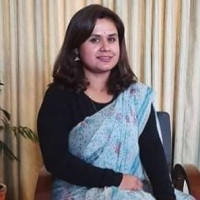

-square-thumb.jpg)
